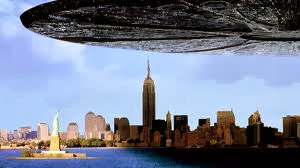One of the things about being a professional writer, which I am only in the very loosest sense, is that you have to develop control.
You get to a sticky point, and the natural urge is just to give up and say 'it's all too hard' and go and do something else.
Anyone seeing the finished product has no idea of all this background angst that went into completing it.
So what's wrong with me this week?
I have been having a difficult time with business issues and my house now on the market, with possible consequence of having to move, and this uncertainty makes it hard to concentrate.
No one is forcing me to write this blog, but I do it for my own reasons, mainly having somewhere to moan, and Wednesday is the day.
So I am going to attempt to stick at it.
So what's with the title?
This stems from someone I know asking me how I was.
Now this is a perennially thorny issue for anyone with chronic depression.
The genuine answer is usually "not good", but I have long since learned not to say this, because no one really wants to hear it.
Also, most people are busy with their own lives and problems to listen.
I understand that as well, which is why I go to counselling with Paula, she being paid to listen to me moan.
But therefore, what do I want people to ask?
I know it's a reflex more than anything else to ask how someone is, but I think I'd prefer people to just say 'hello', rather than 'how are you doing?', if they're not prepared to listen to the answer.
And then if someone does ask how I am, and I give the "fine, thanks" answer, it leaves me feeling terribly alone, unable to express my true feelings.
It kind of reminds me of one of Ben Elton's books Stark.
The female lead, Rachel, was saying she didn't like being referred to as someone's 'lady', she goes on:
"In the end Rachel began to think she would honestly prefer to be known as someone's casual fuck, than their lady."
And I kind of feel the same here.
But then the next part of the problem is that I do unbend, against my better judgement, and say "I'm not doing so well", I usually get asked "why?", and this opens a whole other Pandora's box, because when I say why it is that I'm feeling like this, the advice starts.
And man, does this make me mad.
I urge the entire sentient world to take a leaf out of my therapist Paula's book, and never give any advice.
I once had to explain to my brother that therapists, if they know what they are doing, never give advice.
He thought that I went in and lay on the couch, and the therapist then told me what to do, avoid him and my father in that particular case.
But this was of course completely untrue, I was avoiding my father for the usual reasons, and I was avoiding my brother because he agreed with my father.
So in the end this leaves me kind of out of options I can tell you.
I don't want anyone to ask how I am if they aren't going to listen to the answer and, clearly, I don't want any more advice.
As I once had to explain to my brother, by giving advice you are basically saying you know more about life than the receiver of said advice.
I might add that one of the bits of my philosophy that I have developed is this: "advice is the opposite of money, people will give without stinting, but refuse to take a cent".
So no more advice please, unless your prepared for me to tell you what's wrong with your life.
Mind you, I really have a chicken and the egg paradox going here, because the people I am most mad at don't read this blog, so who am I yelling at?
Not you, that's for sure.
So let's move on to another topic, mainly so I have a photo to go with the blog, vegetarian's aren't soft.
Why's this matter?
It doesn't really, but I remember when one of the Australian cricketers, Peter Siddle announced he was a vegetarian, in fact a vegan.
There was some controversy with many saying that you can't play professional sport if you don't eat meat.
Well that's rubbish.
I have been a vegetarian for some years now and feel fine.
I did have low iron recently when I went for my annual checkup, but I saw pharmacist Fleur and she gave me some iron supplements, they taste like a rusty gate (joke), but they have certainly been doing the job.
If I had a big day of energy expenditure, gardening, cycling, gym and surf, I would often be very tired around six in the evening, and have to work hard to stay awake till ten so I could sleep through the night.
But since I've started taking the iron pills, I haven't had a problem.
And I might add, I became a vegetarian once I began doing autopsies on sea turtles down at Seabird Rescue.
I can assure you once you've followed the scalpel inside the green liquid contents of a long dead turtle, you'll never touch meat again.
Promise you that.
So I'll close with this picture of the world's most dangerous vegetarian.
If you're willing to go up and stab your finger in his chest and tell him he's soft, then I'll start eating meat again.
 |
| Cape Buffalo, even the flies steer clear. |













